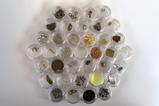A challenge for the year ahead

If we meet someone for the first time in a social context, the question ‘so, what do you do?’ often forms part of the introductory repertoire.
When I share that I’m a chemistry academic, invariably the response is some version of either ‘oh, I hated chemistry at school’ or ‘oh, you must be really clever’. Neither is great for our discipline. These typical responses (which also seem to ring true for other chemists I’ve raised this topic with) indicate that a substantial number of people leave school with a suboptimal relationship with chemistry; either through lack of enjoyment or finding our subject difficult, or both.
As I’ve written in this column before, I think we need to do more to shift this perspective.
I’ve been reflecting on some of my experiences sharing chemistry in an Australian context, together with the findings of the Royal Society of Chemistry’s first UK ‘Public Attitudes to Chemistry’ survey from 2015. A decade on, it seems like a good time to revisit the survey and reflect on some of our approaches to chemistry communication ready for the year ahead. While findings from that survey showed that the UK public recognised the value of chemistry, saw chemists in a positive light and overall had a more positive view of chemistry than anticipated by chemists, there was also certainly room for improvement.
pH Neutral
The research report detailing results of the survey, found that overall respondents had a ‘relatively low interest and engagement’ in chemistry and that they expressed a ‘neutrality about chemistry: they did not see it as personally relevant and lacked concrete examples of its applications; finding it much easier to specify and visualise negatives or stereotypes.’
As part of the project, the RSC published a really great communication toolkit that can support all of our efforts to try to build a stronger and more positive emotional connection between non-chemists and chemistry, and to combat the view of our discipline as ‘complicated, distant and abstract’.
Supported by many of the key principles outlined in the toolkit, I have a proposal for the year ahead, I invite you all to join me in some #ChemistryConversations.
The challenge, should you choose to accept it, is to try to ‘sneak’ chemistry into a conversation with a non-chemist stranger, friend or family member and (in alignment with the key principles from the communication toolkit) to find a way to share your enthusiasm for our discipline with tangible but simple illustrative examples.
If you’d like to record what you talked about and why, or how you think your discussion was received, please feel free to write a short post (that respects the privacy of the person you chatted to) on a social media platform of your choice together with the tag #ChemistryConversations. To help you develop rapport, and not be a bore, here are some tips to bear in mind.
Conversation is the key
Although you may be the person to introduce the chemical topic, be sure to ask questions and listen carefully to the response of the person or people that you’re talking to, and to tailor your conversation in a way that is as inclusive and as engaging as possible.
Storytelling is a very powerful form of communication, so try to think carefully about how to weave a clear and compelling narrative arc into your interactions. The introduction of a chemical topic should not feel overwhelming and ideally it should be packaged in a way that the person you are talking to could pass on some anecdotes or information from your interaction.
Short and sweet
Initially, it might be an idea to keep your #ChemistryConversations short and sweet but with room to continue or expand your discussion if the person asks more questions or shows more interest in the topic.
Conversation starters
One powerful way to communicate chemistry is to think about the ways that it connects with popular culture such as sport, film or stories that are in the news cycle. Other ways are to share aspects of why you find chemistry so interesting or how it connects to your job or career. As suggested in the communication kit, it’s important to talk about ourselves as individuals not just as scientists. This can help to build a greater sense of connection not just to chemistry but to the types of people who are chemists and the different ways in which we work with chemicals or the chemical sciences.
From time to time, I’ll also try to share a #ChemistryConversationStarter on my social media accounts and it would be wonderful if any readers of this column would like to do the same. I look forward to hearing your updates online and seeing where our #ChemistryConversations may take us this year.

















No comments yet